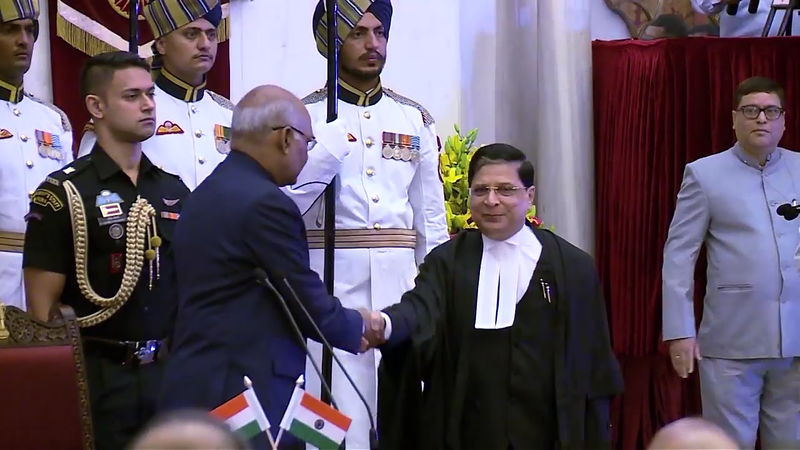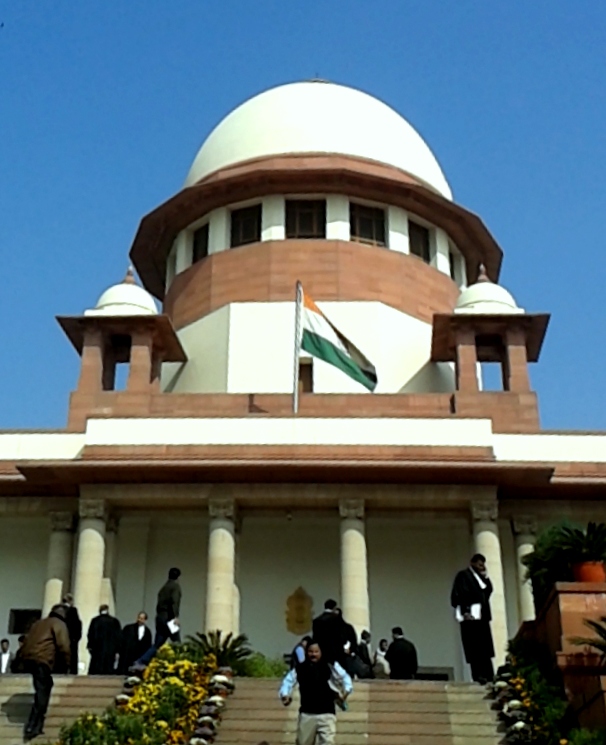
Justice Dipak Misra’s tenure as India’s 45th Chief Justice comes to an end on October 2, 2018. He served the apex court for 13-months and six days. One of the senior-most judges in the Supreme Court, he has scripted many firsts in his tenure as the Chief Justice. Over the next 20 days, he will be delivering judgments in several prominent and controversial matters.
Here is a look at some of them.
1. Section 377
A five-judge bench comprising Chief Justice Dipak Misra and Justices Rohinton F Nariman, A M Khanwilkar, D Y Chandrachud and Indu Malhotra had commenced the hearing on a batch of petitions challenging the constitutional validity of Section 377.
After a marathon hearing, the court reserved its judgment. The verdict of this much-awaited case is likely to be delivered before the current Chief Justice retires.
2. Aadhaar
Twenty-seven petitions challenging the unique identity number have been filed in the Supreme Court.
A five-judge constitution bench had heard the case on the constitutional validity of Aadhaar and the judgment was reserved. In light of the right to privacy verdict, the verdict on Aadhaar is a keenly awaited one.
3. The Babri Masjid case
It has been 25 years since the demolition of the Babri Masjid in Ayodhya. In 2010, a three-judge bench of the Allahabad High Court passed an order in the Ayodhya Babri Masjid case. In a 2:1 majority ruling, the bench said the land was to be partitioned equally among the three parties — the Sunni Waqf Board, the Nirmohi Akhara and Ram Lalla.
The bench headed by Justice Misra will also answer the pertinent question whether a mosque is integral to Islam.

Photo Source: Wikimedia Commons
A ruling on this is necessary before the apex court takes up the Ram Janmabhoomi-Babri Masjid title dispute.
4. Sabarimala temple entry
Another contentious issue that will be decided upon before the Chief Justice retires is whether women will be allowed entry into the Sabarimala temple.
A constitution bench led by Chief Justice Misra has reserved its order on the issue after an NGO questioned the prohibition. During the hearing, the court observed that the practice was based on the “patriarchal” belief that a man’s dominant status in the society makes him capable of austerity.
5. Legislators practicing law
The top court will also deliver its verdict on whether legislators can be stopped from practising as advocates. A bench comprising Chief Justice Dipak Misra and Justices A M Khanwilkar and D Y Chandrachud reserved the order after noting the Centre’s submission that an MP or an MLA is an elected representative and not a full-time employee of the government.
6. Adultery
The Supreme Court has said that provisions in the Indian Penal Code (IPC) related to adultery are archaic and anti-women.
A five-judge bench headed by Chief Justice Dipak Misra observed a bunch of petitions that sought the squashing of IPC Section 497.

The court observed, “The law seems to be pro-women but is anti-women in a grave ostensible way. As if with the consent of the husband, (the) wife can be subjected to someone else’s desire. That’s not Indian morality.”
The next few weeks are not just going to be busy for the Chief Justice but will also be extremely important for us, as citizens, with matters of personal choice to larger socio-political issues to be decided.
Justice Misra has always been vocal about protecting the interests of the minorities. The legal fraternity has even gone so far as comparing his judgments to that of legal luminary V R Krishna Iyer. He is also known to quote extempore from Shakespeare and the Vedic texts with equal ease.
(Edited by Shruti Singhal)